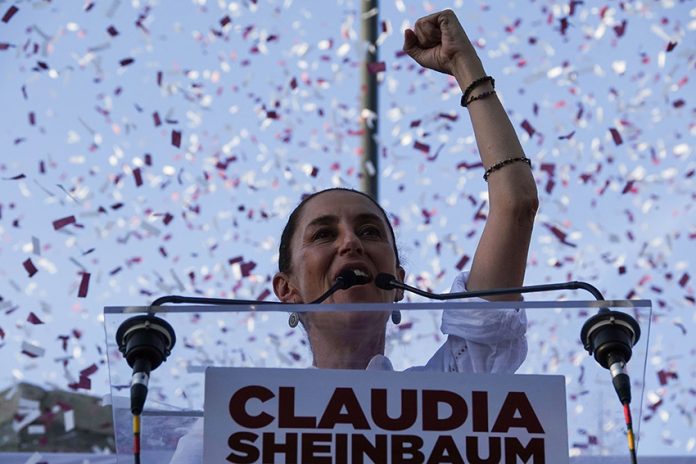Just over seven weeks before voters go to the polls to elect a new president, leading candidate Claudia Sheinbaum of the ruling Morena party spoke to the El Financiero newspaper between campaign events earlier this week.
Here is an overview of the remarks the former Mexico City mayor made to journalist Salvador Camarena while traveling by car to an event in Amecameca, México state.
On the security situation in Mexico
Sheinbaum, who polls show has a double digit lead over opposition bloc candidate Xóchitl Gálvez, acknowledged that crime and violence are a concern in parts of Mexico, but asserted that is not the case in the “majority” of the country.
She recognized that one state where insecurity is a problem is Guanajuato — Mexico’s most violent state in recent years in terms of total murders — but said that she hadn’t “perceived” fear among guanajuatenses, as residents are known, or Mexicans who live in states such as Jalisco and Michoacán, where crime is also a concern.
Gálvez is campaigning heavily on her pledge to establish a “Mexico without fear.”
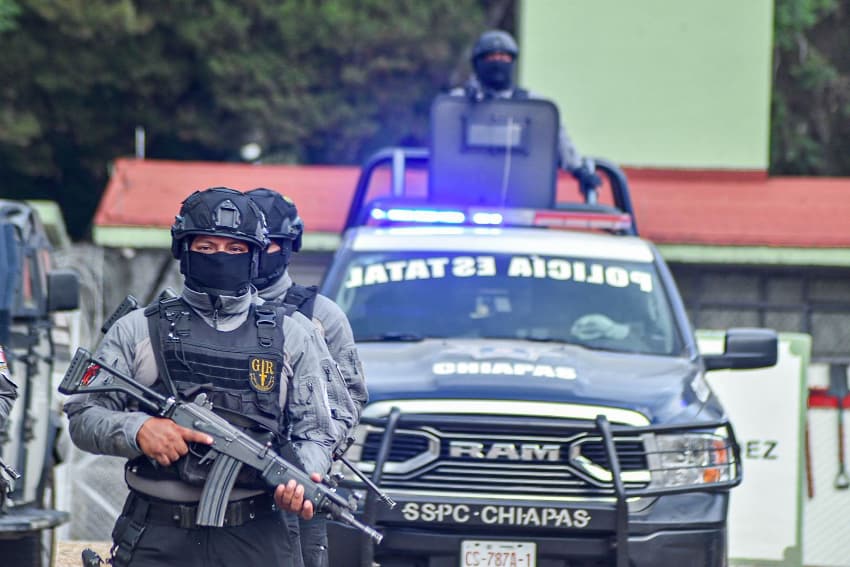
Sheinbaum said that access to healthcare and education are more pressing concerns for many Mexicans.
“In many places before [calling for] security, people shout at me, ‘a hospital! a school!’ she said.
“I’m not saying that [security] isn’t an issue on which we have to continue making progress, I don’t want to make light of [the problem], but this idea that Mexico is afraid and doesn’t want to go out to the street, I don’t agree with that perception,” Sheinbaum said, adding that the government of President Andrés Manuel López Obrador (AMLO) has made progress in combating crime and reducing homicide rates.
“It will be up to us to do it more quickly, and we have to have a security strategy because there is organized crime in the country,” the Morena candidate said.
On whether she will be ‘independent’ of AMLO as president
“I’ve always said that I’m the one who is going to govern and I’m going to govern for the people of Mexico,” Sheinbaum said when Camarena put it to her that the people of Mexico want to know whether she will be free from the influence of AMLO, her political mentor and former boss when she served as Mexico City environment minister in the early 2000s.
“I hope that the people of Mexico feel represented by me, that’s the objective. … President López Obrador is a very respectful man. He never spoke to me by telephone when I was mayor to tell me [what to do], to give me an instruction. Never,” she said.
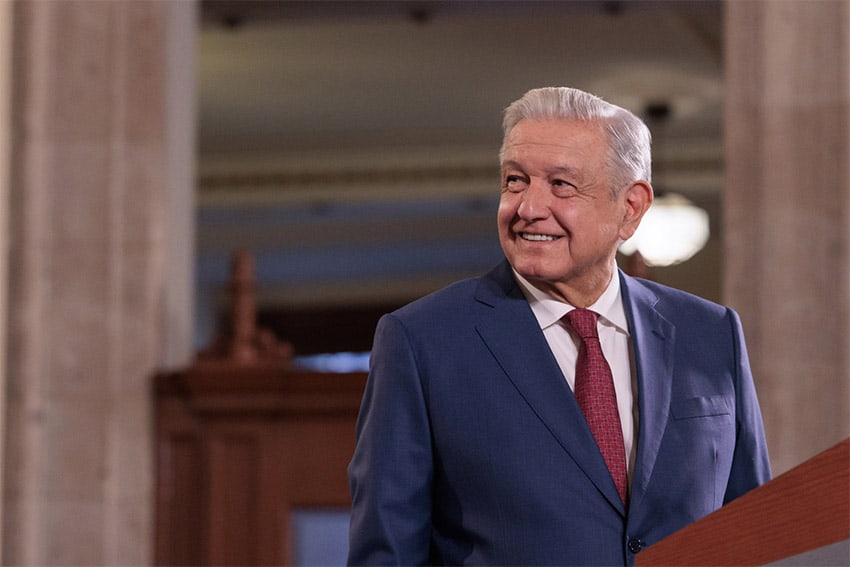
On renewable energy
“I dedicated myself to energy [matters] for years,” said Sheinbaum, a physicist and environmental scientist who worked with the Intergovernmental Panel on Climate Change, which won the 2007 Nobel Peace Prize.
“I always thought that renewable energy had to be promoted, so we’re going to try to accelerate the energy transition in the country,” she said while responding to a question about how she would differ from AMLO as president.
On water
“I believe resources and time have to be dedicated to decontaminating the country’s rivers … and … other bodies of water,” Sheinbaum said.
“… I’m a scientist, on many of the issues I’m going to have scientists working with me. For example, on the issue of water [scarcity], which is one of the country’s big issues,” she said.
On her plan to perpetuate the ‘transformation’ of Mexico initiated by AMLO
Asked whether she and the Morena party would shift to the political center should she be sworn in as president on Oct. 1, Sheinbaum pledged that the “transformation” of Mexico will continue under her leadership.
Indeed she is already the official leader of the “fourth transformation” (4T) political project López Obrador started when he became president in late 2018.
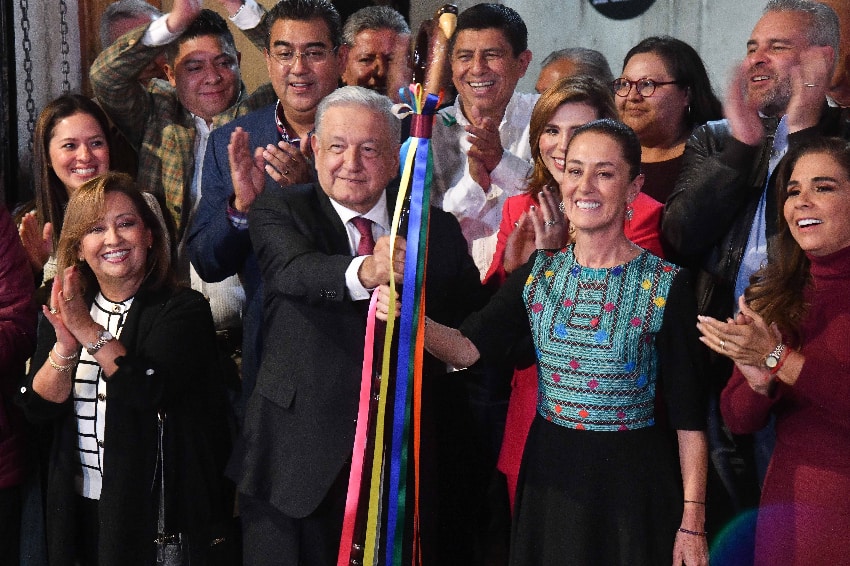
Sheinbaum said that under her leadership, Mexico will continue to have a government that:
- is “dedicated to those who have the least.”
- is “austere.”
- has “fiscal and financial discipline.”
- “defends the autonomy of the Bank of Mexico.”
- is honest.
“We’re going to defend our project of transformation of the country,” the presidential aspirant reiterated.
On whether she will continue AMLO’s tradition of holding press conferences every weekday
Sheinbaum said she didn’t know whether she would hold daily mañaneras, as López Obrador’s lengthy pressers are colloquially known, but stressed that she is “convinced” that there is a need to have “direct communication with the people.”
The media “serves a function, but there also has to be direct communication,” she added.
On the case of the 43 missing students
Sheinbaum predicted that, in the 5 1/2 months it has left in office, the current government will make a lot of progress toward solving the almost 10-year-old case involving the abduction and presumed murder of 43 young men who were studying at the Ayotzinapa Rural Teachers College in Guerrero.
If the case isn’t resolved by the time AMLO leaves office, “we’ll finish it,” she said.
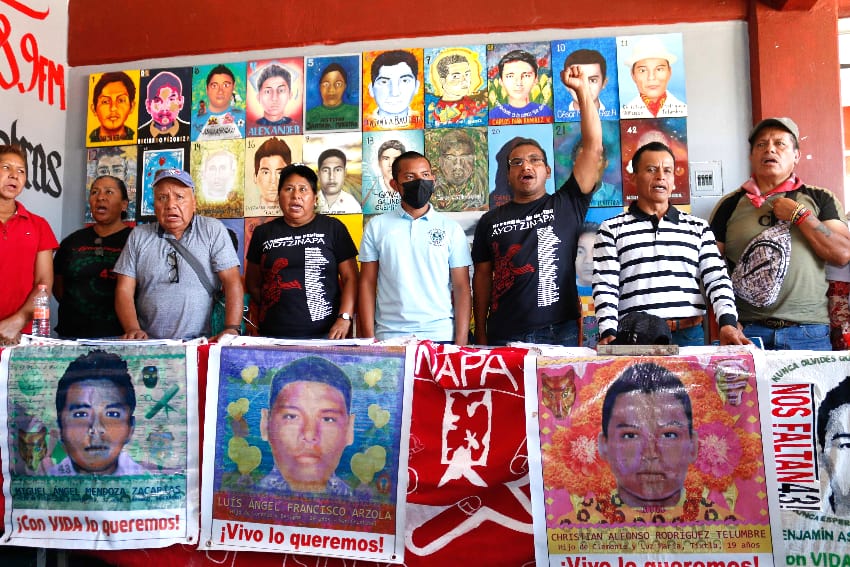
“It’s a wound for Mexico and the only way to close a wound is to by having justice, truth and justice,” Sheinbaum said.
More election reading
Want to read more about the June 2 elections at which Mexicans will not only elect a new president, but also state governors, mayors and thousands of municipal, state and federal officials?
Take a look at these Mexico News Daily articles.
- A review of the first president debate
- An analysis of a recent poll
- A summary of Expansión Política’s 2023 interview with Sheinbaum
- A summary of Expansión Política’s 2023 interview with Gálvez
- A report on the selection of Jorge Álvarez Máynez as the Citizens Movement party presidential candidate
- An introduction to the three candidates seeking to become the next mayor of Mexico City.
With reports from El Financiero
